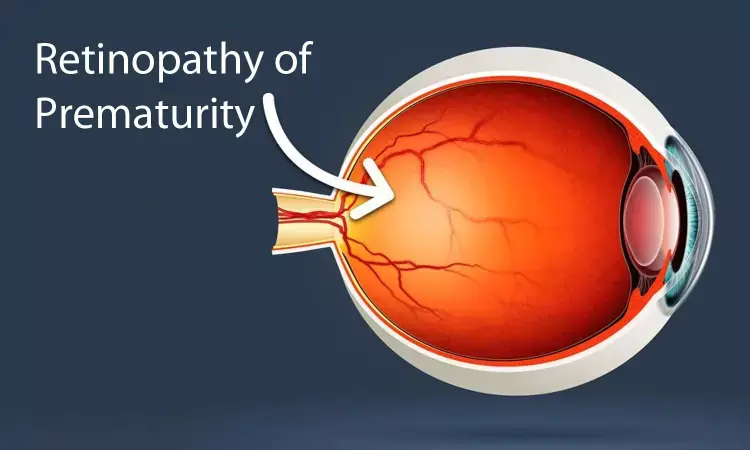- Home
- Medical news & Guidelines
- Anesthesiology
- Cardiology and CTVS
- Critical Care
- Dentistry
- Dermatology
- Diabetes and Endocrinology
- ENT
- Gastroenterology
- Medicine
- Nephrology
- Neurology
- Obstretics-Gynaecology
- Oncology
- Ophthalmology
- Orthopaedics
- Pediatrics-Neonatology
- Psychiatry
- Pulmonology
- Radiology
- Surgery
- Urology
- Laboratory Medicine
- Diet
- Nursing
- Paramedical
- Physiotherapy
- Health news
- Fact Check
- Bone Health Fact Check
- Brain Health Fact Check
- Cancer Related Fact Check
- Child Care Fact Check
- Dental and oral health fact check
- Diabetes and metabolic health fact check
- Diet and Nutrition Fact Check
- Eye and ENT Care Fact Check
- Fitness fact check
- Gut health fact check
- Heart health fact check
- Kidney health fact check
- Medical education fact check
- Men's health fact check
- Respiratory fact check
- Skin and hair care fact check
- Vaccine and Immunization fact check
- Women's health fact check
- AYUSH
- State News
- Andaman and Nicobar Islands
- Andhra Pradesh
- Arunachal Pradesh
- Assam
- Bihar
- Chandigarh
- Chattisgarh
- Dadra and Nagar Haveli
- Daman and Diu
- Delhi
- Goa
- Gujarat
- Haryana
- Himachal Pradesh
- Jammu & Kashmir
- Jharkhand
- Karnataka
- Kerala
- Ladakh
- Lakshadweep
- Madhya Pradesh
- Maharashtra
- Manipur
- Meghalaya
- Mizoram
- Nagaland
- Odisha
- Puducherry
- Punjab
- Rajasthan
- Sikkim
- Tamil Nadu
- Telangana
- Tripura
- Uttar Pradesh
- Uttrakhand
- West Bengal
- Medical Education
- Industry
Intake of new supplement halves risk of retinopathy of prematurity, finds study

Risk for a severe form of retinopathy of prematurity, which can cause blindness in extremely premature babies, was halved when the newborns were given a new supplement combining various fatty acids. This was shown in a Swedish study led from the University of Gothenburg.
The study, now published in JAMA Pediatrics, is described as groundbreaking in its field. It documents a clear fall in retinopathy of prematurity (ROP) among extremely premature (EP) infants (born before 28 weeks' gestation), whose retinal blood vessels are not fully developed. The condition can cause visual impairment and, at worst, blindness after retinal detachment.
The study included 206 EP babies in the neonatal wards at the university hospitals in Gothenburg, Lund, and Stockholm over a period exceeding three years, 2016-19.
Roughly half of these newborns were given prophylactic nutritional supplements, orally, with the omega-3 fatty acid DHA (50 milligrams per day and kilogram of body weight), combined with the omega-6 fatty acid arachidonic acid (twice as much). Today, the latter fatty acid is not included in the supplements routinely administered to EP babies immediately after birth.
In the group of EP infants given the fatty acid supplement, 16 of 101 (15.8 percent) had severe ROP. The corresponding proportion in the control group was 35 of 105 (33.3 percent).
In adults, high levels of omega-6 fatty acids are associated with inflammation and cardiovascular disease. In the fetal period, arachidonic acid is an essential building block for cellmembranes and act as signaling molecules between cells. The omega-3 fatty acid DHA is a vital component for blood vessels and nerve tissue.
Ann Hellström, Professor of Pediatric Ophthalmology at Sahlgrenska Academy, University of Gothenburg, and chief physician at Sahlgrenska University Hospital, is in charge of the study.
In previous studies, the research group have shown the connection between ROP and low arachidonic acid levels in EP babies' blood. Administering arachidonic acid as a supplement has been a topic of debate, and further clinical studies on how to devise an optimal mix of fatty acids have been called for.
"In our study, we're taking a step toward answering that question by showing such a distinct reduction in one of the severe neurovascular complications that can arise after extremely preterm birth" Hellström says.
Other results in the study showed no significant differences between the two groups in terms of the incidence of the lung disease bronchopulmonary dysplasia, or in the degree of intraventricular cerebral hemorrhage, which is also common in EP infants. Sepsis occurred in slightly fewer of those who received the fatty acid supplement: 42 of 101 babies, against 53 of 105 in the control group.
Every year, approximately a thousand EP babies in Sweden are screened for ROP. Four of ten born before 30 weeks' gestation suffer from the disease to some degree. In Sweden, blindness can usually be prevented with laser treatment. Worldwide, however, some 20,000 infants go blind or suffer from severe visual impairment annually as a result of ROP.
https://jamanetwork.com/journals/jamapediatrics/fullarticle/2775874
Hina Zahid Joined Medical Dialogue in 2017 with a passion to work as a Reporter. She coordinates with various national and international journals and association and covers all the stories related to Medical guidelines, Medical Journals, rare medical surgeries as well as all the updates in the medical field. Email: editorial@medicaldialogues.in. Contact no. 011-43720751
Dr Kamal Kant Kohli-MBBS, DTCD- a chest specialist with more than 30 years of practice and a flair for writing clinical articles, Dr Kamal Kant Kohli joined Medical Dialogues as a Chief Editor of Medical News. Besides writing articles, as an editor, he proofreads and verifies all the medical content published on Medical Dialogues including those coming from journals, studies,medical conferences,guidelines etc. Email: drkohli@medicaldialogues.in. Contact no. 011-43720751


